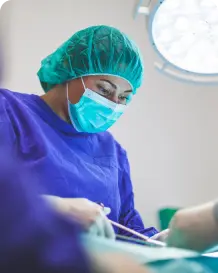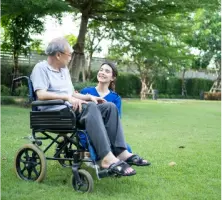Total Knee Replacement Surgery in Hoshiarpur
Total knee replacement surgery also known as total knee replacement operation or full knee replacement surgery is a surgical procedure that is performed to alleviate pain and functionality in individuals who are suffering from sev...
Total knee replacement surgery also known as total knee replacement operation or full knee replacement surgery is a surgical procedure that is performed to alleviate pain and functionality in individuals who are suffering from severe knee joint pain and stiffness. This surgery aims to replace the damaged knee joint with a prosthetic implant to restore normal knee function. Read on to learn more about the procedure.
Read more
Happy patients
 50+
50+
Expert surgeons
Personal Assistance







